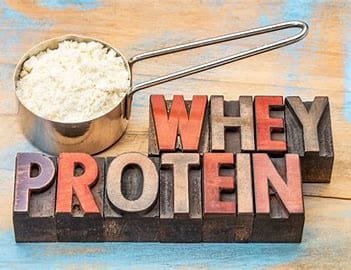This makes whey protein one of the most pursued dietary supplements among fitness enthusiasts and health-conscious people. The most common use is for muscle building.

however, the latest study shows it may represent the new era in weight reduction practice as well. In this article, we will discuss how whey protein helps in losing weight and other benefits supported by scientific research.
What Is Whey Protein?
Whey protein is the liquid portion of milk, though that can be separated from the curds during cheese production. It is a complete source of protein and contains all nine essential amino acids that the human body cannot manufacture on its own. Whey protein is typically consumed in powder form and occurs in one of three primary forms: whey protein concentrate, whey protein isolate, and whey protein hydrolysate. Each type varies a bit in percentage of proteins it contains and how fast they are absorbed by the body.
Whey Protein and Weight Loss
Multiple mechanisms come together to explain the involvement of whey protein in the double process of losing and retaining muscles.
Creates satisfaction and reduces appetite
One main reason one uses whey protein for weight loss is that it fills people up, sometimes referred to as satiation. Out of the three, protein is the most satisfying compared to carbohydrates and fats. In particular, whey protein has been found to reduce hunger and food intake in healthy and weight-loss individuals. This occurs because whey protein leads to more secretion of hormones such as GLP-1, PYY, and CCK, which send signals to the brain that it has reached the stomach. This at the same time decreases levels of ghrelin, a hunger-triggering hormone. Moreover, whey protein results in a general reduction of calorie intake; thus, it is easier to maintain a caloric deficit, which, in turn, makes losing weight impossible without it.
Increases metabolism and fat burning
One more way that whey protein supports weight loss is raising metabolism. Protein is more calorie expensive to digest and metabolize than fats or carbohydrates—an effect sometimes referred to as the thermic effect of food (TEF). This means that in taking protein-rich foods such as whey protein, the body actually expends calories even at rest. Also, whey protein may be useful in augmenting fat oxidation since it would impel the body to burn the latter as the primary source of energy instead of its storage. When combined with regular exercise, this can lead to greater fat loss over time.
Supports muscle preservation during weight loss
Weight loss typically accompanies the loss of both fat and muscle mass. But for muscle is very significant in that muscle tissue is metabolically active; that is, it continues to burn calories even at rest. Whey protein helps to preserve lean body mass during calorie restriction, thus ensuring that much of what is lost is really fat and not muscle. This is particularly important in the long-term weight loss, as it has been associated with a faster metabolism.

Other Health Benefits of Whey Protein
Other than aiding in weight loss, whey protein offers a myriad of health benefits that advance the general well-being and fitness of an individual.
Raises Muscle Mass and Strength
Whey protein is a basic necessity for any athlete or bodybuilder who wishes to raise muscle protein synthesis in his body. It is also rich in BCAAs, particularly leucine, which plays a critical role in muscle repair and building. When taken after resistance training, whey protein speeds recovery and builds more muscle strength and size over the long term. This makes it not only useful to professional athletes but also to anyone wanting to improve their physical performance or body composition.
Enhances Immune Function
Whey protein is rich in immunoglobulins and lactoferrin, substances thought to strengthen the immune system. Chronic supplementation with whey protein could be some way to increase protective body resistance to infections better, especially in cases of severe physical exercise or stress, during which the immune system is considered to be more prone to injury. Another recommendation is that whey protein has antioxidant properties since it is rich in cysteine, a glutathione precursor, a strong antioxidant that protects cells from damage.
Whey protein support heart health.
In addition, whey protein could help in heart health consumption. More research discovered that whey actually lowers blood pressure, an important risk factor for those who already have a high blood pressure level. This is probably the result of the stimulation by whey of nitric oxide, which causes the opening of blood vessels to relax the blood flow. The cholesterol level was also found to be decreased by whey protein, with special attention to the kind classified as LDL, or low-density lipoprotein, otherwise known as the “bad” cholesterol that can cause heart disease.
Regulates blood glucose levels
WHOLE PROTEIN ALSO SUPPORTS THE CONTROLLING OF BLOOD SUGAR.
therefore, it is good for individuals with type 2 diabetes or those at the risk of developing type 2 diabetes. Intake of whey protein before or during meals reduces the rate of entry of glucose to the bloodstream; thus, blood sugar spikes tend to drop. This effect would be particularly important if whey protein is taken before taking high-carbohydrate meals so as to handle the elevated levels of glucose after taking a meal.
Gut Health
According to new research, whey protein apparently has a beneficial effect on gut health through its action to be able to foster a well-balanced microbiome. A study found that in some populations of gut bacteria, whey protein can augment the levels of favorable bacteria to higher levels for good digestion and absorption of nutrients as well as functioning of the immune system. Through interaction with gut health, whey protein improves health conditions and reduces the risk of gastrointestinal disorders.
Conclusion
Whey protein is more than a muscle-building supplement. It can result in weight loss due to increased satiety, metabolism, and preserved muscles. However, the rest of the health benefits associated with whey protein are improved muscle growth, strengthening of the immune system, improvement of the heart condition, normalizing of blood sugar levels, and potential benefits toward gut health. If you are an athlete looking for optimized performance or just searching for more general wellness, adding whey protein to your diet may provide a host of benefits that go far beyond the gym.




